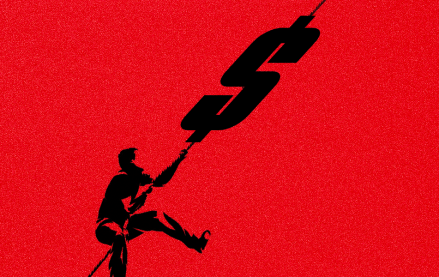Social media got its start with a reciprocal friendship model. It was a bedrock of the MySpace and Friendster experience, and later adopted by Facebook.
This makes sense. After all, at its best social networking surfaces your real life social graph. But as many can attest, this can quickly get overwhelming with many boasting friend totals that fars exceed the Dunbar number of 250 such relationships. That’s pushing more weight to non-reciprocal social media relationsips, as evidenced with the Twitter follower method and Google+’s circles.
It’s easy to feel uncomfortable with the idea of having followers rather than friends. But non-reciprocal systems could end up saving the actual notion of friendship. Twitter is not social in the way that Facebook is. It’s not about making friends, or even following friends necessarily; it’s about following good content. As a study from Korea’s Advanced Institute of Science and Technology found from analyzing over 41 million user profiles and 1.47 billion follower/following relationships, only 22 percent of all connections on Twitter are reciprocal. What’s even more telling is the finding that 68 percent of all Twitter users aren’t followed by a single person they are following.
Twitter is clearly much more about broadcasting content than any kind of personal relationship. Yet the old social network mindset is still in evidence. Take Chris Brogan’s experience for example: Brogan, an entrepreneur and social media and marketing expert, decided to declare Twitter bankruptcy last September and mass unfollowed all of the then 131,000 plus people he had been following. As he explained on his blog in a post entitled “The Great Twitter Unfollow Experiment of 2011,” he decided to mass unfollow because his account was becoming flooded with spam messages. Even though he had announced on his Twitter account several times what he was doing and why and that he would slowly follow people back, he found that many did not react well to being unfollowed and took it personally. Some people even unfollowed Chris.
It just goes to show that when it comes to social media relationships, the same human emotions are at work online as they are in real life. But what people need to remember is that the number of Facebook friends or Twitter followers you have doesn’t really mean anything. Most people we call our “friends” on Facebook are at best acquaintances. Twitter is about following content, not friendships or any kind of personal relationship for that matter. If I follow Sarah Silverman or CNN on Twitter, I am not going to expect them to follow me back.
It is a very human thing to want to love and to want to be loved back. It is what defines us and differentiates us from other species. But if reciprocity in a relationship is forced, it can’t be that sincere of a relationship.
More in Media

Walmart rolls out a self-serve, supplier-driven insights connectors
The retail giant paired its insights unit Luminate with Walmart Connect to help suppliers optimize for customer consumption, just in time for the holidays, explained the company’s CRO Seth Dallaire.

Research Briefing: BuzzFeed pivots business to AI media and tech as publishers increase use of AI
In this week’s Digiday+ Research Briefing, we examine BuzzFeed’s plans to pivot the business to an AI-driven tech and media company, how marketers’ use of X and ad spending has dropped dramatically, and how agency executives are fed up with Meta’s ad platform bugs and overcharges, as seen in recent data from Digiday+ Research.

Media Briefing: Q1 is done and publishers’ ad revenue is doing ‘fine’
Despite the hope that 2024 would be a turning point for publishers’ advertising businesses, the first quarter of the year proved to be a mixed bag, according to three publishers.





